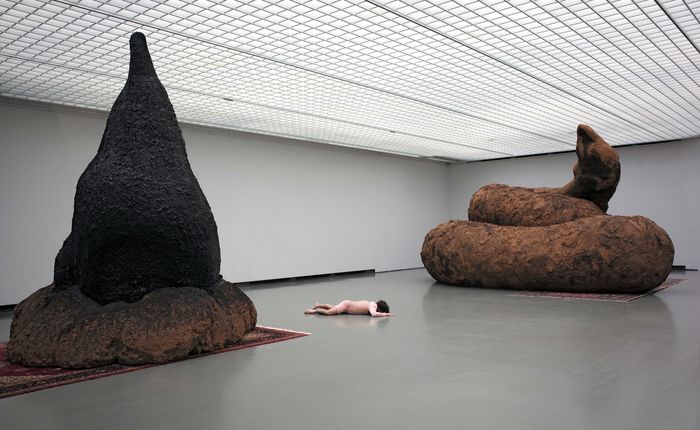Yes and no. Certain films are much more difficult to make now than a few decades back. Basically a whole kind of movie has almost ceased to exist those last few years. And that's smart but accessible blockbusters. Movies that serve as a kind of bridge between the more arthouse like movies and those that are most comparable to Marvel. It is, which is why I keep making the comparison, a lot like fast food. Fast food chains have caused many middle class restaurants to close. They were pushed out of business by chains continually growing. And while we have more restaurants now, than we did before, we have less variety in cuisine. With movies we might have more movies. But less variety, as they are mostly run by the same formula created by the same company. And the other big companies trying to compete, usually do so by copying the very big one. That's happening with Disney. Their share has gotten so big, they have become so dominant, that other studios are pressured to the point where they desperately copy Disney. So more restaurants, but less choice of food. More movies, but less choice of genre, quality, ambition and so on.
And the age of streaming also means more dependence on the streaming services, partly owned by the same companies that produce the movies (Disney obviously). They have a genuine interest in bypassing cinemas. They see them as an unnecessary party that gets money that should be theirs. Which is a huge blow to them. And as said before, I love cinemas. I really enjoy the shared experience and the way you are exposed to the screen and therefor much more emotionally vulnerable in a cinema compared to home, because you don't control what's happening. Michael Haneke once said as much about being exposed to the screen, but much harsher so I won't quote him here. ^^
And it's more difficult to release arthouse movies, if the amount of potential buyers becomes smaller. Disney growing is bad for indie movies, as they have fewer potential buyers with different interests, different kinds of movies they want to release. They basically have Disney and a few others nowadays, which means that they have to play by their rules.
And again, I think this shouldn't be a strange opinion to find in this thread. It's pretty much what it's been about from the start.
I don’t necessarily disagree with much of what you’ve written here, but this has been a common theme throughout the history of cinema.
If anything, cinema (re: Hollywood) is actually a cultural zeitgeist of the USA. The post-war period specifically predicated the saturation of Westerns. Hollywood was pumping out this genre in that post war period, and it reflected the mood and feeling of the time. It was holding up a lens on the USA, the white saviour, who were bringing law, order and civilisation to the heathens…just as they had done to Nazi Germany.
But the Vietnam war, the counter culture of the 60s changed all that…and again, it changed how the USA viewed itself. There was a small second wind of revisionist Westerns, and Spaghetti Westerns, but the tides were shifting for good. It’s why dystopian Sci-Fi effectively replaced the Western as the go to model in cinema (re Hollywood) for most of the late 60s and 70s. The various scandals, CIA watching you, coups in South America led covertly by the USA were all common themes in these sci-fi films (ie nothing is what it seems, tech is bad and corrupt etc etc). It’s actually ironic that Star Wars, which is essentially a Space Opera/Western, became the defining movie of this genre/time (because it was literally A New Hope following the shit the USA did across the world previously, and could resume its role as the white saviour).
I think post this period, we had era defining genres, such as sci fi moving into horror (80s) which kind of coincided with VHS, action (90s), and specifically with action, again, this was how the USA saw itself on the world stage. In fact, I'd say Hollywood is one of the primary ways that the USA exports its culture on the world - think about how significant it is in giving the heathens (i.e. the rest of the world) a glimpse of the American dream, their values, and their culture. In the 90s, it's important again to understand what was happening in the world at the time, Gulf War, end of the Soviet Union, capitalism 'winning'…again, the USA reasserting itself as the main world player, the hero.
So how does this relate to where we are now? What I’m trying to say is - superhero movies have been and will be pumped out, just as other genres have been. It’s a sign of the times, and it holds up a mirror to what the USA is, or more accurately, what it wishes it is and how they wish to be seen. It's the same as Westerns in the 50s/60s, dystopian Sci Fi in the 70s, 80s, Action in the 90s - they're just exporting their values, culture and their role as the hero in the world. And it's why this superhero trend is just a continuation of that - Hollywood will pump these out by the dozen because it reflects the people, and the culture at the time. Super powers, and super human acts of heroism is what they think they do on the geopolitical stage.
I don't know what the next trend will be, but if you follow politics, you could make a guess that perhaps we'll see a retraction of the USA as the main political superpower, and this will be reflected in its movies as well.


